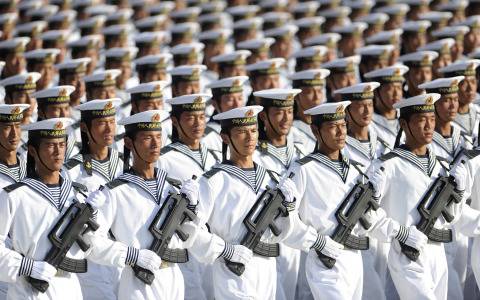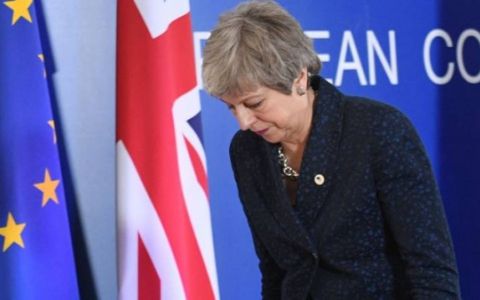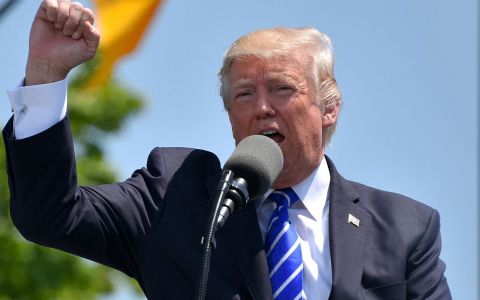
Here we consider the application of history in predicting outcomes. Can you invest in these predictions?
David Murrin, geophysicist, investment banker, hedge fund manager, historian and futurologist addresses the following:
“Applying the code of history to inform the future: what can we learn about current events?’’
Location: The Coffee Room, The Cavalry and Guards Club, 127 Piccadilly, LONDON W1J 7PX.
Qualifying Bullet Points:
- David Murrin, after extensive study of multiple empires, has developed a methodology to interpret historical events in the context of an imperial cycle
- Shifts in power between empires are the outcome of a cycle which repeats itself:
- 1. The Five Phase Life Cycle of Empires - a model of the growth and decline of civilisations - can provide a way both to understand history’s ‘big picture’ and to accurately assess current and future geopolitical environments. It is similar to a Gaussian curve - a statistical probability distribution of data around an average. Empires are not all the same, of course, but the majority of them exhibit a similar distribution, peaking at about 60-70 percent along their life cycles.
- 2. The Five Stages of Empire are as follows:
i Regionalisation
ii Ascension to Empire;
iii Maturity;
iv Overextension;
v Decline and Legacy.
- Let’s look at two different scenarios in the context of David’s structure:
- Firstly, let’s look at Civil War- as David explains this often occurs during the regionalisation. The current Brexit saga (2016-?) displays similar social drivers to the English Civil War, 1642-1648.
- Secondly, let’s consider an example of Great Hegemonic Power Shift, by comparing and contrasting the events of the late 19th Century when Imperial Germany challenged Imperial Britain to the current China v USA global struggle.
Expansion of each Example
- Firstly, let’s look at Civil War- as David explains this often occurs during the Regionalisation. The current Brexit saga displays similar social drivers to the English Civil War, 1642-1648:
1 The English Civil War was an important event in the history and development of Britain.
i It had a great effect on the development of the military, the economy and the establishment of political parties
• Economy: it was an adrenaline shot to the heart of the City of London, forcing through change and innovation. Thereafter, capital was used in a different way: it enabled a wider cohort of bourgeoisie and new nobles to invest and trade
• Military: Cromwell established an advanced army and navy
• The New Model Army- which was both properly trained and equipped. Spending on defence was an incremental fillip to the economy. However, it remained hierarchical: officers’ commissions had to be bought which left them as the preserve of the wealthy elite. This acted as a brake on the system
• New Model Navy-this was arguably the more remarkable consequence of the Civil War. It laid the foundation of meritocracy in Britain. The Navy needed a plethora of technical skills. If you showed ability as a midshipman or even as a sailor, you would make it to Captain from the deck.
• Political Parties: The first Tory Party dates from the Civil War- gradually emerging as a movement from a reaction to the excesses of the reformers. The Whigs were the more dominant Parliamentary cohort emerging from the Civil War. The issue which led to political demarcation was the Restoration. The former group had more sympathy with the Jacobites and the latter with the strict enforcement of a constitutional monarchy. - 2 Brexit: i The full future impact of Brexit is an unknown, but a few of the following points should be considered:
• The creation of The National Lottery under Sir John Major led to strategic investment in areas such as UK Sport (founded 1997), and subsequently, some amazing sporting results. The emergence of a new national energy was manifest by Gold Medal tables. UK Sport picked up the baton after GB garnered a paltry single GB Gold medal in 1996:
• 2000- 11 Gold Medals
• 2004 - 9
• 2008- 19
• 2012- 29
• 2016- 27
• This investment has driven a strong national identity and a pride in GB, which transcends party politics. It has also driven expectations in other fields from politics to other sports, and from the economy to defence. This energy is a manifestation of the forces which led to the Brexit vote.
• The rise of new political figures such as Nigel Farage – without the benefit of major party funding- is another example of an agent for change. It is David v Goliath, when one considers the weight of money and infrastructure he faced. Whatever side of the debate one occupies, Farage twice forced the Tory Party to react in an unprecedented manner: firstly, the admission by David Cameron that a Brexit vote had to happen and secondly as a catalyst for the election of Boris Johnson; the Tory Party had to react in order to survive
• It’s not just the Tories who face an existential crisis. Labour will also be forced to adapt by multiple new political forces. Recent analysis sees the Labour Party losing seats and influence to the Brexit Party. So, if there were a General Election in Q4 2019 analysts see up to 65 Labour seats being lost to the Brexit Party, 25 seats to the LibDems and up to 10 to the Tories. That’s 100 seats out of a current total of 229! So, both major political parties are well and truly on the edge • Brexit, which some describe as the world’s first bloodless civil war has unleashed unstoppable change - Secondly, let’s consider an example of Great Hegemonic Power Shift. Let’s compare and contrast the events of the late 19th Century when Imperial Germany challenged Imperial Britain to the current China v USA tension.
1 1914 was the result of Germany challenging Britain - the new versus the old and a failed deterrence. The failure of liberal policies championed by Lloyd George encouraged conflict. Germany saw Britain’s near catastrophe in the Boer War and increased its arms build. The op
2 2019: China challenging America for Hegemonic power:
i President Obama’s liberal policies encouraged Chinese expansion at a staggering rate
ii President Trump has reversed much of the Obama’s giveaways
iii So, in 2019, President Trump is determined to meet the Chinese challenge head-on
iv Trade war will continue as it’s a ritual locking of horns.
v Naval shipbuilding is the now a top priority in the USA (similar to the Dreadnought race pre-WWI)
vi The probability of a naval confrontation USA/China is growing
vii US and Chinese leaders will drive arms manufacturing through the next global downturn
Some Related Reading
A The Five Stages of Empire are as follows:
i Regionalisation: Early in the growth of a regional power, a struggle occurs between various states within the same geographical vicinity, with the victor amalgamating all of the others. (Rome, for example, absorbed other city-states before going on to control the whole of the Italian Peninsula.) This enlarged state then becomes a player in the game of nascent empires, aiming to expand further until it attains imperial status.
ii Ascension to empire: When a regional power successfully absorbs a number of similar rivals, it then spreads out, projecting its power further. This process marks the ascension stage. Once again, smaller entities are amalgamated and absorbed (e.g. Macedonia and Greece, Rome and Carthage).
iii Maturity: In the cycle of empire, a phase of equilibrium and stability naturally follows a period of conquest and expansion - assuming the borders of the new empire are well defined and well defended, and the administrative system highly organised: this is the maturity stage of empire. Without gains from conquest, a stable economy is required to generate enough revenue both to sustain a defensive army and to maintain civil harmony.
iv Overextension: Overextension signifies the onset of gradual decline, beginning at levels apparent only to the most astute observers and ending in financial disasters and military challenges. At some point an empire’s success induces complacency, arrogance, corruption and other manifestations of decay, as the comforts of civilised society give rise to expectations by the middle classes that the status quo will be maintained. The transformation of an empire from ‘barbarian’ to ‘civilised’ is now complete, and over time it will become ripe for domination by another aspirant. In the early stages of overextension, the cost to the economy of running an empire is no longer compensated for by revenue. The empire then begins to increase its debt burden, preventing a rise in military expenditure precisely at a time when it is most threatened by new challenges.
v Decline and legacy: For an empire in the final throes of overextension, the cost of power vastly outweighs its economic benefit. Imperial sustainability becomes increasingly unfeasible, and the system rapidly begins to disintegrate. Although the signs would have been present during the overextension stage, other great powers would, for the most part, not have begun to recognise the waning empire’s vulnerability until the final stage of decline and legacy, when external and internal dynamics deteriorate at an alarming rate. Enemies on the periphery then awaken to the progressive ebbing of vitality, and become emboldened by incremental successes that can soon escalate. The old empire is now prey for other regional powers in the ascendant. The rate of decline surprises the world as a formerly iconic empire collapses.
B Civil war often attends rising empires that are approaching the end of their regionalisation stage:
In each case below Civil Wars resulted in new leaders and new growth forces:
A 1642-48: English Civil War
B 1861-1865: American Civil War led to: consolidation, finance and trade. Demographics and the forces of innovation saw the North (ideas, new technologies, concentration of population and talent) set against the South (wealth, resources, more established wealthy elite). Many of the same forces at play in the English Civil War were at play here too.
C 1917: The Russian revolution: the removal of the Tsars empowered a new cohort of leaders, harnessing a large population to a dream, which played on making them feel relevant, giving them the impression of equality.
D 1866: Austro-Prussian War: Consequence was Prussian dominance over German states
E 1933: Third Reich was driven by: the empowerment of a ‘cohort of corporals’, who filled the vacuum of WW1’s destruction of the German leadership class, and led to a second global challenge.
F 1927-1949: In 1949 the culmination of China’s communist revolution empowered a new cohort to ‘make China great again’ after an era of foreign occupation and dilution of national identity.
David Murrin
- Fascinated by military history from an early age
- Studied physics and geophysics at university
- Worked in the jungles of Papua New Guinea – a tribal revelation of human collective behaviour
- Joined trading floor of JP Morgan- same behaviours observed in post-industrial humans!
- Started first hedge funds in 1993.
- 9/11- the dawn of a new paradigm
David Murrin began his unique career in the oil exploration business, amongst the jungles of Papua New Guinea and the southwestern Pacific islands, engaging with the numerous tribes of the Sepik River and exploring the mineral composition of the region. Before the age of adventure tourism, this region was highly dangerous, very uncertain and local indigenous groups were often hostile and cannibalistic. Not only did he keep his head, but it was his work with the PNG tribespeople that catalysed his theories on collective human behaviour.
In the early 1980’s David embarked on a new career joining JP Morgan in London whereby watching his colleges on the trading floors he quickly identified that modern society also behaved collectively. He was thy sent to New York on JPM’s highly- rated internal MBA equivalent finance program. Once back in the London, he traded FX, Bonds, equities and commodities on JPM’s first European Prop desk. In ’91, he founded and managed JPM’s highly successful European Market Analysis Group, developing new behavioural investment techniques, which were utilised to deploy and manage risk at the highest level of the bank.
In 1993 David founded his first hedge fund Apollo Asset Management, and in 1997 co-founded Emergent Asset Management as CIO. His primary role was overseeing trading across all fund products, as well as being particularly active in the firm’s private equity business, He co-founded Emvest, Emergent’s African land fund in 2008 and acted as its Chairman until its sale from the group in 2011. In addition, through Emergent’s Advisory Business, David was responsible for the critical fund raising for Heritage Oil allowing it to expand significantly by investing in its Uganda exploration programme. He took full control of Emergent in 2011 combining his management of the Geomacro fund with the role of Chief Executive Officer until 2014.
David has been described as a polymath and his career of more than three decades has been focused on finding and understanding collective human behavioural patterns including deep-seated ‘patterns’ in history and then using them to try and predict the future for geopolitics and markets in today’s turbulent times. He has a remarkable track record.
David’s advisory and speaking work today is based on his direct investment experience combined with a framework that can be used to explain and qualify decisions within an investment team, aid risk assessment, and reduce biases in collective investment decisions.
David is a keen racing and classic yachtsman, who co-founding the British Classic Yacht Club in 2002 which has grown over the past decade into a substantial organisation. He was the vice and then Commodore of the Club up until 2019. Visit Zulu Yachting for more information
David has written two books; Breaking the Code of History and Lions Led By Lions.
References and Context:
1. David is a keen observer of the impact of right brain thinking (creative and asymmetric- aka lateral- thinking) versus left brain (iterative and process driven). He sees the function of global political leadership as a pendulum which swings between these cranial hemispheres: ossified iterative structures sow the seeds of their own destruction by failing to react to demographic change or innovation. Thus, right brain thinking creates change and new opportunity, but over time it will be superseded by process, which becomes increasingly ossified until it declines.
2. https://www.davidmurrin.co.uk/breaking-the-code-of-history
In this prescient book of astonishing breadth – the culmination of decades of personal research across a wide range of disciplines – Murrin offers a conclusion as brilliant in its simplicity as it is complex in its workings. Human behaviour, he argues, is not random, but determined by specific, quantifiable and predictable patterns fuelled by our need to survive and prosper. As individuals and collectively, we have been governed for thousands of years by unconscious responses that repeatedly mire us in catastrophe.
3. Review:’’ I saw the author speak a couple of months ago in a panel interview at a conference, and was impressed. It's rare, but very refreshing, to see a financial "expert" or commentator who has actually read about history and the markets further back than the last few years. David has done this and much more, and seems to be a real polymath.’’
4. https://www.davidmurrin.co.uk/book/lions-led-by-lions
‘’The story starts with the arms’ race leading up to the outbreak of war. Although the Royal Navy received the resources it needed to ensure continued domination of the high seas, Britain’s politicians neglected the preparations of the potential combatants on the European continent. When the BEF deployed to northern France in 1914 it had 150,000 men, compared to more than 4 million in the armies of Germany and France, between which it was sandwiched. The failure of the British political leadership to prepare a British reserve army for deployment in 1915 meant that by the time it arrived in 1916 for the Battle of the Somme it joined a weakened French army and faced a battle-hardened German army. As such the BEF was forced to learn its lessons the hard way, on the battlefield.’’
5. https://www.davidmurrin.co.uk/media/trade-war-will-bring-debt-crisis-wi…

















